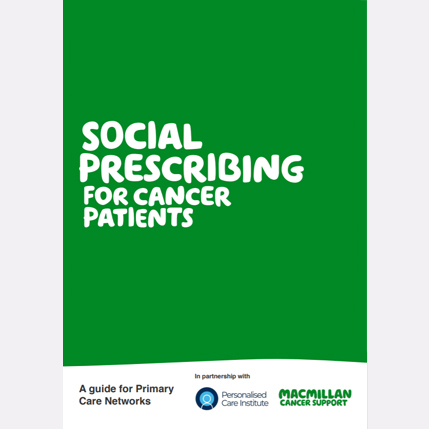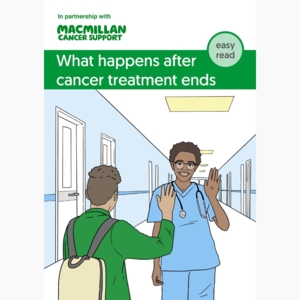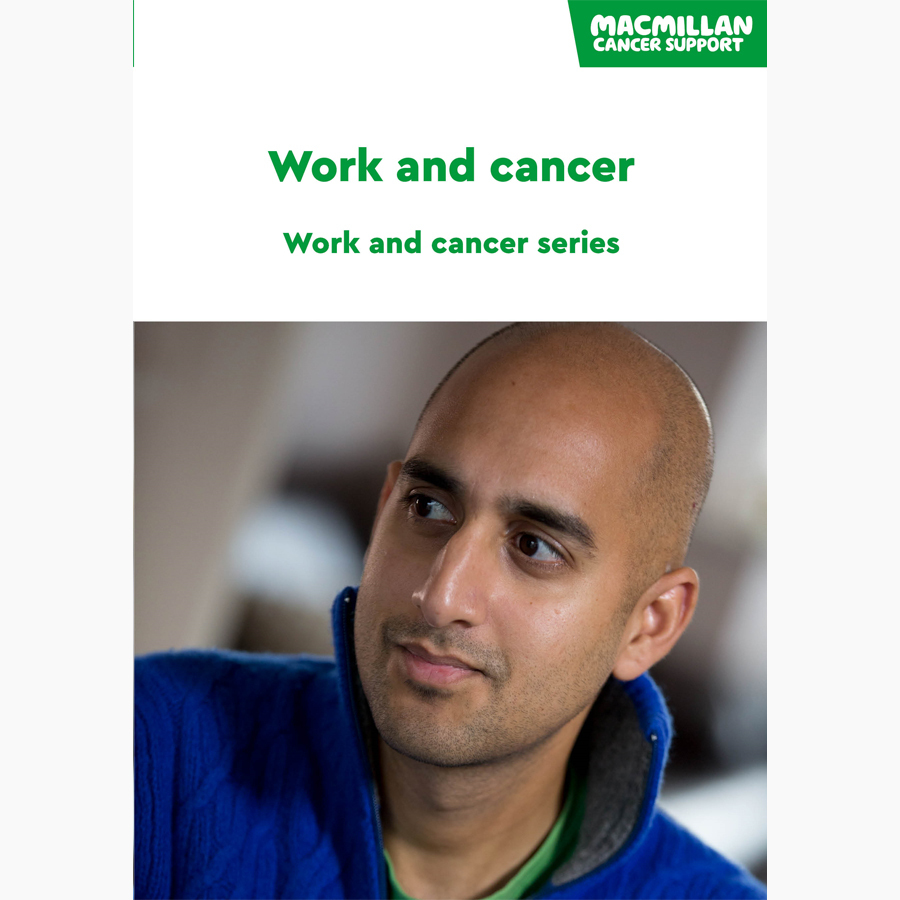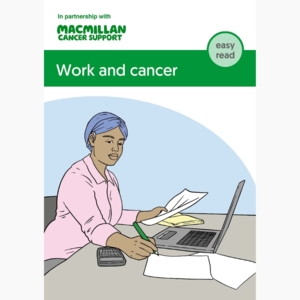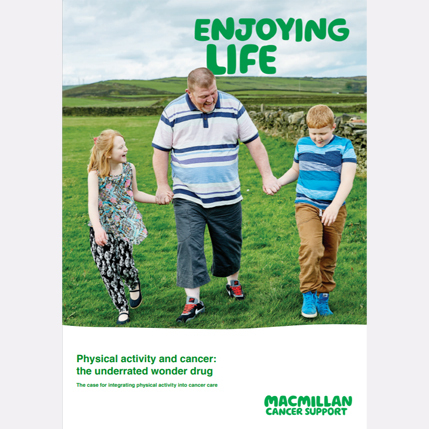10 Top Tips: Social Prescribing and Care Coordination in Primary Care
On this page
-
1. The role of social prescribers and care coordinators in cancer support
-
2. The role of social prescribers and care coordinators in primary care teams
-
3. Post cancer support for your patients
-
4. Loneliness in cancer patients
-
5. Recognising and managing emotional needs
-
6. Understanding the financial impact of cancer
-
7. Supporting patients to get back to work
-
8. Encouraging physical activity
-
9. Dealing with physical impacts of cancer
-
10. Care for cancer patients with co-morbidities
-
About our information
-
For your patients
1. The role of social prescribers and care coordinators in cancer support
Related pages
Booklets and resources
2. The role of social prescribers and care coordinators in primary care teams
3. Post cancer support for your patients
People living with cancer have described feeling like they have ‘fallen off a cliff’ when they’re discharged from regular follow-ups. Having the opportunity to be seen by such a key role working in Primary Care can provide the support they need.
It may also be helpful to signpost your patients to our after cancer treatment information and the following booklets.
Booklets and resources
4. Loneliness in cancer patients
We know that almost a quarter of people living with cancer are suffering from loneliness as a result of their cancer.
Social prescribers and care coordinators can help people identify community groups, activities or support that may alleviate this.
The following pages and resources may be helpful for your patients.
Booklets and resources
5. Recognising and managing emotional needs
Over 70% of people living with cancer need emotional support. About 2 in 5 people suffer from depression and 1 in 10 are troubled by anxiety.
Social prescribers and care coordinators can contribute to identifying these needs by:
- asking what matters to the person
- signposting/referring to appropriate support
- identifying sources of support in the community
- referring the individual back to their GP/CNS where appropriate.
Visit our services for your patients page to learn about the different support and information we can provide your patients.
6. Understanding the financial impact of cancer
Research has shown that 4 in 5 people living with cancer experience a negative financial impact as a result of their cancer. The average person living with cancer is £570 a month worse off.
Social prescribers and care coordinators can ensure people living with cancer are getting the financial support they are entitled to.
It can be helpful to share the following webpages and resources with your patients.
Booklets and resources
7. Supporting patients to get back to work
Getting back to work after a cancer diagnosis can be difficult. Research suggests that 87% people living with cancer who were employed at the time of diagnosis would like to return to work. However, over half of people living with cancer don’t know where to go to get help with this.
A social prescriber or care coordinator could provide vital support. Our Macmillan’s Work Support Route guide and Top Ten Tips for Primary Care Professionals may help with these discussions.
The following webpages and resources may also be beneficial for your patients.
Booklets and resources
8. Encouraging physical activity
Appropriate advice and support regarding physical activity can be essential for people living with cancer from the time of being diagnosed, through treatment and recovery, and to prevent effects of treatment or recurrence of cancer.
Social prescribers and care coordinators can signpost people living with cancer to services that are available locally.
The following webpages and resources may be useful for your role.
Related pages
Booklets and resources
9. Dealing with physical impacts of cancer
People living with cancer can have multiple physical consequences of cancer and its treatment that may need medical intervention.
Having a close relationship with the primary care team can be beneficial. By developing links back into and from secondary care, you can ensure these problems are identified early, and that people are offered appropriate support.
We also have information on physical impacts of cancer and treatment and late effects of treatment that can be helpful for patients.
10. Care for cancer patients with co-morbidities
Over 70% of people living with cancer will be living with at least one other co-morbidity.
We are already seeing how social prescribers and care coordinators can help primary care teams provide individual personalised care to meet people’s physical, social, and practical needs.
About our information
Written by Dr Anthony Cunliffe in partnership with the Personalised Care Institute.
Next planned review: March 2025
We make every effort to ensure the information in these pages is accurate and correct at the date of publication, but it is of necessity of a brief and general nature, and this should not replace your own good clinical judgement, or be regarded as a substitute for taking professional advice in appropriate circumstances. In particular check any drug doses, side-effects and interactions. Save insofar as any such liability cannot be excluded at law, we do not accept any liability in relation to the use of or reliance on any information contained in these pages, or third-party information or websites referred to in them.



